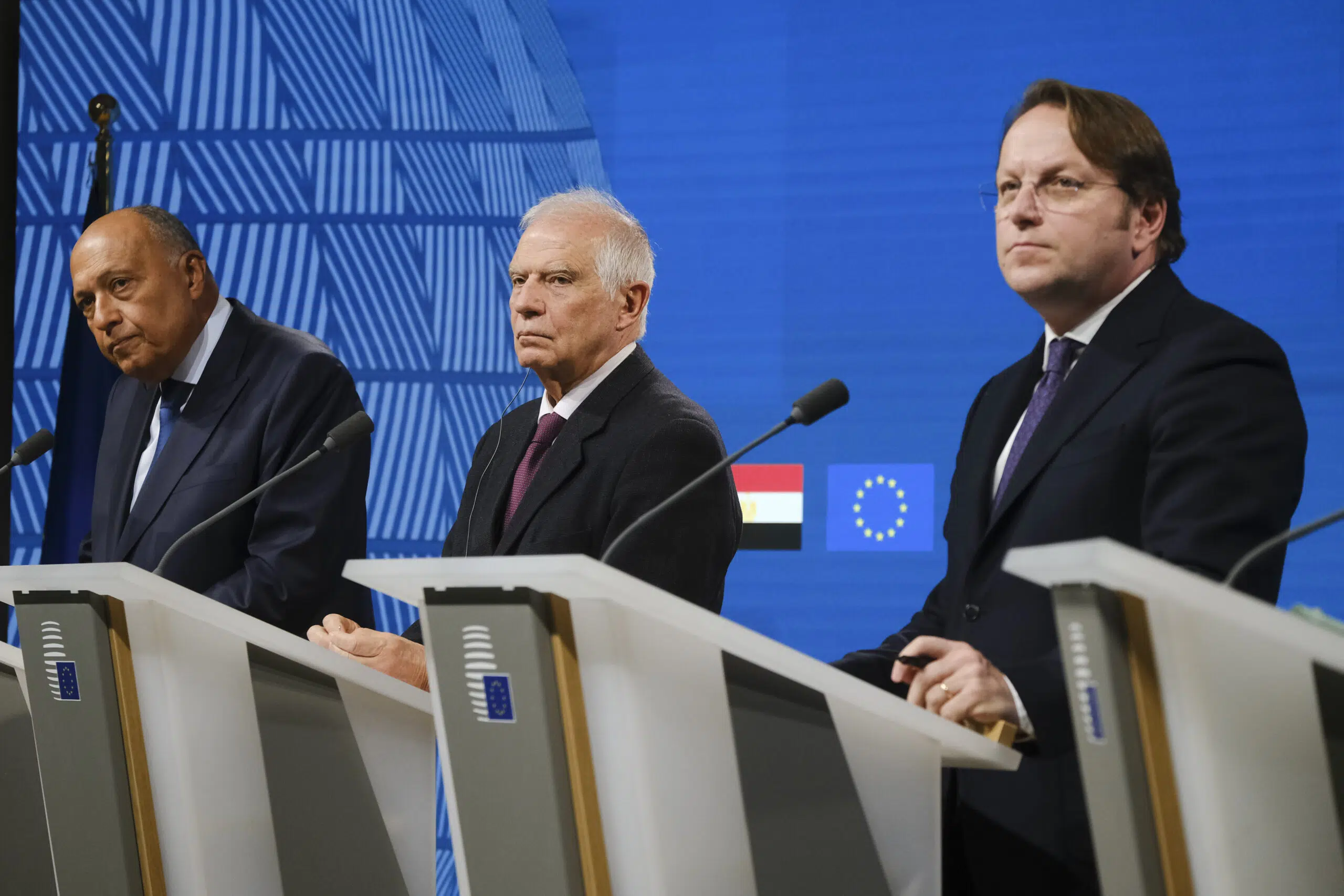Brussels – We are entering a “golden age” of relations between the EU and Egypt. On the occasion of the 20th anniversary of the Association Agreement between Brussels and Cairo, the European Commissioner for Neighbourhood and Enlargement, Olivér Várhelyi, announced that he “hopes to get all the go-ahead from the member states within the next month and get to the signing” of a new strategic partnership.
The von der Leyen Cabinet has been working for some time now to replicate in other countries in the region the model agreement applied in July with Tunisia. And now, the Memorandum of Understanding, embroidered on the Association Agreement that has bound the EU and Egypt since 2004 and the partnership priorities signed two years ago, seems to be on the home stretch. “I am pleased that our cooperation has gained intensity and quality,” said EU High Representative for Foreign Affairs, Josep Borrell, at the joint press conference with Egyptian Foreign Minister, Sameh Shoukry.

The partnership with Egypt will be based on six pillars of “mutual interest”: political relations, economic stability, investment and trade, migration and mobility, security and demography and “other areas we are working on,” Várhelyi explained. Just today, Borrell and Shoukry have signed an agreement that will allow Egypt to participate in some European programs open to third countries, such as Horizon Europe.
In support of the idea that the time is ripe for “elevating cooperation with Cairo to a comprehensive and strategic partnership,” Várhelyi cited the “success” of the economic and investment plan for Egypt, which includes the mobilization of 9 billion euros in investments in the food, water and energy sectors, over the period 2021-2027. “We are proud to have already mobilized 5.8 billion euros,” the Hungarian commissioner exulted. And then there’s the increasingly important presence of European companies in Egypt, which provide “a significant part of the driving force of the Egyptian economy,” and the trade figure: the EU is Cairo’s leading trading partner, covering 27 per cent of all Egypt’s trade.
While the Memorandum with Tunisia revolves more around border management and cooperation on migration issues, for Egypt—a country that already hosts over nine million migrants on its territory—the challenges and opportunities are different. On the one hand, as Borrell explained, the EU will be committed to “supporting economic and social development, accompanying Egypt’s reform agenda, from the economy to human rights, and attracting crucial investment” to the country. On the other, Brussels is particularly interested in the North African country’s huge energy basin. “Egypt can become not only a reliable supplier of gas, but also a reliable source of renewable energy. Egypt’s potential in terms of green electricity is hard to match,” said Varhelyi, on the sidelines of the discussion with Borrell and Shoukry.
EU and Egypt reiterate support for the Two-State Solution in Israel and Palestine
Also on the agenda of the 10th Association Council was the ongoing crisis in the Middle East. The EU and Egypt shared their concern about the dire humanitarian situation in Gaza, urging “maximum restraint and protection of civilians following universal principles of international humanitarian law.”
Borrell wanted to emphasize “the crucial role played by Egypt in assisting the Palestinian population and in negotiating humanitarian breaks and the release of hostages.” The two partners affirmed their resolute rejection of any form of individual or collective displacement, forced or otherwise, of Palestinians from any part of the occupied territories, including the Gaza Strip, the West Bank, and East Jerusalem.
They are still far apart on the need to halt hostilities: Egypt calls for an immediate ceasefire, while the EU has stressed the urgency of humanitarian pauses. But Brussels and Cairo share the need to revive the two-state solution. “The only path to a just, lasting, and comprehensive solution to the Middle East conflict is the two-state solution that ends the occupation and leads to the creation of an independent, contiguous, sovereign Palestinian state,” reads the joint statement published after the meeting.
English version by the Translation Service of Withub






